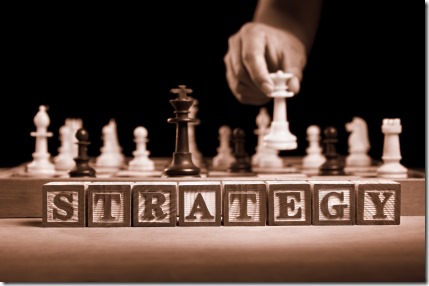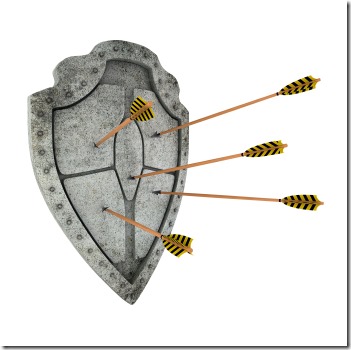
There are two main approaches to trading for decades. One is discretionary trading and the other is mechanical trading since the rise of the personal computer era. Retail traders are often molded into one of the two camps and led to believe that one is superior to the other. This naive belief causes so much misery among the retail trading communities that it deserves a much better narrative to explain the subject.
Trading is a Trap to Lose Money for Majority of People
I have explained in so many writings including several series of articles for beginners to understand what it takes to learn to trade successfully from scratch. In short, majority of people attempting to learn to trade discretionarily will fail, either right from the beginning or eventually, because they have not corrected their internal belief system to handle trading from the proper perspective. There are many courses out there teaching people how to correct their belief system but it only works on those who are willing and determined to change themselves for greater success.
This leads to the appeal of mechanical trading for anyone who understand the obstacles with discretionary trading. After all, a mechanical system with the right edges should generate profits automatically, isn’t it?
It turns out trading with mechanical models takes the same type of belief system in the first place to achieve success consistently. It is just a different approach to the same pursuit for those who are more scientifically minded with personalities more open minded to accepting automation.
Basic Success in Discretionary Trading
In other words, knowledge is secondary in terms of achieving basic success in trading. What I mean is that if one is seeking for consistency in making money from trading for the long term, the best approach is to fix themselves first. Getting oneself ready for trading, or simply any other business or venture, is the same. Any basic concept in approaching the market with just a little edge will give the trader consistent profit over time, given the people has the right attitude and beliefs in life. Whether the trader is willing to accept what the market is offering based on specific approach to that market is a completely different question.
One thing we have to understand though, is that discretionary traders do not acquire exactly the same set of knowledge for a trading strategy as mechanical traders.
For example, a beginner learning to trade discretionarily is taught to buy pullback in an up trend. If the beginner is willing to focus on this one and only one idea, with full attention to figure out all the details of this single trading setup, mastery of this single technique will happen and consistent profit will follow. But some people just do not hold the belief that pullback setup works and until they change their attitude and embraces the concept 100%, they will never be able to trade the strategy with 100% consistency. It has nothing to do with vagueness.
Look at the skill of riding a bike to see why vagueness does not matter.
When you ride a bike, do you know at any moment exactly how much force you need to apply to each individual leg to get the bike moving?
Do you need to know the exact theory and details behind the fact that you can balance on the bike while it is moving?
You just know how to ride a bike because your brain is trained to handle the details for you by taking all the sensory inputs into account but only if you let go of the belief that it is impossible to ride a bike and believe 100% that you can do it too. Once you learned to ride a bike, even after years of not doing it, you can pick it up quickly again because your brain is wired to believe that you can do it already.
In short, you are programmed to react properly. This also explains why some people are better at discretionary trading. They are more adapted to learning from all their sensory inputs to form the basis of their acquired knowledge.
Basic Success in Mechanical Trading is Different
In a similar situation, when a beginner trader is taught to look for mechanical setup to trade a pullback, they have to look for things that are quantifiable that can be converted into rules that a computer can understand. Since a beginner trader has limited knowledge about the market, their research on how to quantify the pullback strategy will be limited by whatever knowledge they start with.
This approach works well with those who believe 100% that the rules they have discovered will deliver consistent profit over time. In other words, it is acceptance of the discovery and its past performance, disregarding how they come from or why they work, that is necessary to make the mechanical trader consistently profitable. It is hard to do, especial for those people who are actually more suitable with mechanical trading, because people who are more evidence driven and scientific minded are those who likely prefer high probability winning although what really matters is that the strategy discovered is consistently profitable with controlled risk.
Due to lack of complete sensory input like learning to trade discretionarily, mechanical trading strategies discovered by many traders are likely to have lower winning probability since they do not have access to better depth of trading knowledge. Being able to accept this lower probability of winning, is key to basic success in mechanical trading. In this aspect, the hurdle to trading success is very different for discretionary trader from mechanical trader.
Good Discretionary Trading Takes Only a Combination of Consistent Trading Strategies
To become a good discretionary trader, one has to learn to add trading strategies to their trading arsenal one at a time. Once the trader has master several trading strategies to complement each other in different market environment, the trader will perform many times better than a trader who mastered just one trading strategy. Many discretionary traders believe that it is their trading skills improved that leads to the exponential growth in performance . What really happened is that they are benefiting from the Law of Large Numbers.
By looking at a good discretionary trader from mechanical trading point of view, the performance of a good discretionary trader is a combination of several high probability winning strategies. Due to the increased frequency in trading and that the strategies are likely complementary to each other as the trader is adding strategies to handle different market environments, less drawdown is expected and so is consistency in profitability on, say, monthly basis.
In other words, it is not an overall improvement in trading skill per se. It is proper parallel combination of applying these individually profitable strategies that leads to better performance. Traders failing to realize this will suffer eventually as their egos take over their minds and ruin their futures as they hit the eventual obstacle of performance block.
The combination of multiple strategies does not require the trader to understand them from a higher level of clarity. Just like being able to ride a bike and eventually learned how to ride it to do difficult tricks, one does not need to understand exactly how the tricks work in terms of physics. Eventually, there will be tricks that no matter how hard one tries to do them, it seems like they are impossible to do. That’s the performance ceiling. One will not be able to overcome until after playing catch up to learn the science behind riding a bike so that one knows exactly what is required to accomplish the more complex bike tricks.
From this perspective, mechanical trading of multiple uncorrelated trading strategies can offer the trader much better consistency in performance because the mechanical trader does not have the burden of not knowing how to handle the potential conflicts among multiple strategies. All the mechanical trader has to do is to let all the trading models do their own thing. As long as the trading strategies are followed, the aggregated result in performance should be close to the expectations.
Thus good traders will have to eventually accept the fact that they can only do as much in terms of extracting profits from the market if their trading strategies are just a combination of techniques that they do not have deep understanding of. Relearn everything about the markets they trade is a risky business decision that everyone has to evaluate carefully.
Great Discretionary Trading Requires a Coherent Framework
Great discretionary traders are different from the good ones because they have a completely coherent framework in mind. All their trading strategies are derived from the framework hence there is no internal conflict whatsoever when they engage the market. In the minds of these great traders, everything is happening as they are supposed to be. Observing these traders trading, it feels like these traders know what will happen next in the market before things actually happen.
I am not saying these traders really can tell what will happen next in the markets. What really happens is that they know what is more likely to happen next with their deep understanding of the market anchored by their framework on how a market is supposed to function. There are quite a number of market theories that can help traders to think logically and interpret the information in a structured way. Notice that not all of these theories are functional and it is up to the trader to figure out which one actually works. Assuming a trader picking the right theoretical framework to learn from, it still takes the trader to commit fully to the framework and rewire the brain to think and analyze every aspect of the markets using such framework in order to benefit from this approach.
Great discretionary traders are often not the best performer when they just start out trading with their approach. That’s reasonable as a framework driven approach is never optimized to what is happening currently in the market. But eventually, as these traders are gaining experience in trading, they are the ones who will eventually perform better than the others because they do not suffer from being overloaded by trading strategies that have conflicting principles behind.
Great Discretionary Traders Are More Than Super Mechanical Trading Models
If a good discretionary trader is simply a combination of several well defined trading strategies, a great discretionary trader is a super trading model that is built on top of a complete price discovery framework. Using the phrase super trading model is really an understatement considering a discretionary trader has to develop the discipline to manage every trade with straight risk management, let alone handling the psychological challenges like emotional interference from losing and winning streaks. Above all, great discretionary traders also act as control of their trading models. When these great discretionary traders notice a change of market behaviour, they can formulate theories on what caused the changes based on their frameworks to adjust their trading strategies to work better in the changing environment.
Hence it is not that difficult to emulate a good trader using mechanical models provided that we figure out all the facts that are considered by the trader in making the trading decisions. However, to emulate a great trader, one has to resolve the issue of modelling at least part of the price discovery framework employed by the trader. This can be very difficult as the logic used by the trader can be more complex than some very complicated strategy games like go that are well known difficult computation problems.
As a summary, I do not see discretionary trading being all that different from mechanical trading. Overall, there are many similarities among successful traders in both camps as they have to overcome their egos to follow straight trading rules so that consistencies in performance can be achieved. On the other hand, the distinct requirements for each camp take a very different set of personalities to deal with the issues unique to those trading approaches in order to succeed. To the best of my knowledge, mechanical trading models at the present state are still not as good as the great discretionary traders of our time. By giving the mechanical traders ten more years, they may eventually develop trading models that can surpass the performance of the best discretionary traders in the world.








